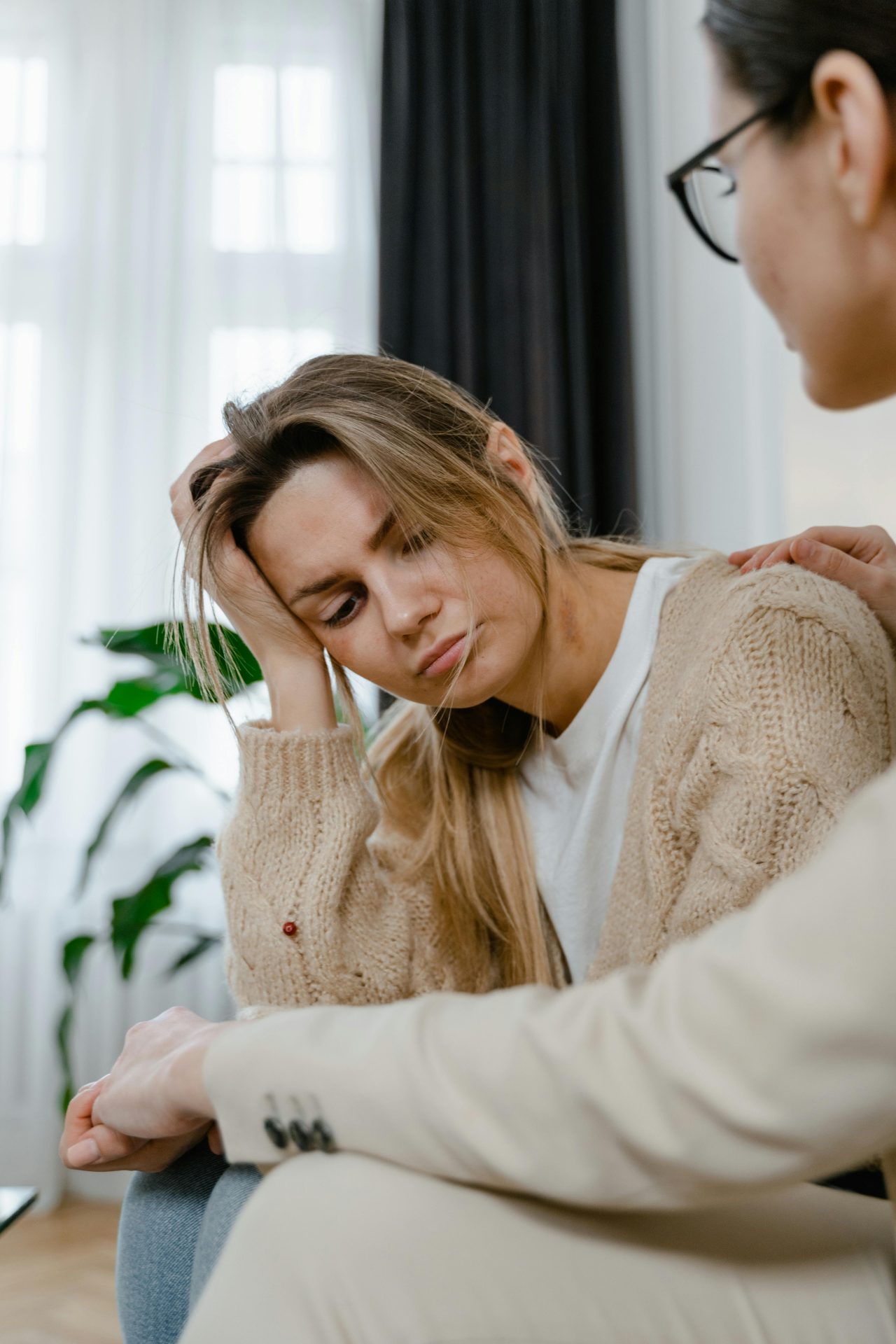Victims of crime
VAWA emerged as a powerful immigration remedy for victims of domestic violence to break free from such somber circumstances and step into a brighter future. Our commitment is to empower survivors of gender-based violence by ensuring they comprehend their rights under VAWA.

What is VAWA Visa?
The Violence Against Women Act (VAWA), established in 1994, is a pivotal federal law in the US. It provides crucial support and resources for survivors of domestic violence, sexual assault, and gender-based violence.
These resources encompass legal assistance, housing support, and counseling. VAWA also establishes criminal penalties for acts of violence and allocates grants to organizations combating gender-based violence. Our team of VAWA immigration lawyers in Baltimore assists survivors in gaining legal status.
What does VAWA Self-petition Imply?
The VAWA self-petition liberates survivors from the constraints of abusive relationships. By allowing them to apply for legal status independently, it ensures that survivors no longer need to rely on their abusers’ sponsorship, providing a path to freedom and autonomy.
To qualify for a VAWA self-petition, survivors must furnish compelling evidence demonstrating abuse by a US citizen or permanent resident spouse or parent. This evidence is crucial in establishing the abuse as a central factor leading to the breakdown of the relationship.
Requirements to Apply for VAWA Visa
To be eligible for VAWA protection and have access to the benefits it provides, applicants must meet a series of requirements.
Among the most essential ones, there are the following:
Victim of Qualifying Crimes
To qualify, individuals must be victims of domestic violence, sexual assault, or other qualifying crimes, establishing their eligibility.
Abuser Must be US Citizen or Lawful Permanent Resident
Survivors must demonstrate that the abuser is a U.S. citizen or lawful permanent resident, meeting a crucial criterion for eligibility.
Evidence of the Relationship
Documentation proving the relationship between the survivor and the abuser, such as marriage certificates, is necessary for the petition.
Good Moral Character
The survivor must demonstrate good moral character, essential for a successful application. This is typically proven through references and background checks.
Filing Deadline
The VAWA self-petition must be filed within specific time frames from the end of the abusive relationship, ensuring timely submission.
What Documentation do I Need to Apply for the VAWA Visa?
VAWA self-petitioners must present the right documents for a successful case. Here’s a breakdown of the essential documents required, each playing a crucial role in validating the survivor’s case:
- Personal Statements: Detailed survivor accounts outlining the nature, duration, and impact of the abuse suffered, providing a compelling narrative for the petition.
- Financial Records: Bank statements, tax returns, or other financial records showcasing the survivor's financial stability, underlining their ability to support themselves and their family, if applicable.
- Medical Records: Reports and records documenting injuries sustained due to abuse, substantiating the survivor's claims and validating the severity of the situation.
- Affidavits from Witnesses: Sworn statements from individuals who have firsthand knowledge of the abuse, corroborating the survivor's testimony and adding credibility to the case.
- Employment Records: Employment documentation indicating the survivor's work history, demonstrating self-sufficiency and financial independence, which can strengthen the case.
- Counseling Records: Documentation from therapists or counselors illustrating the survivor's emotional and psychological state as a result of the abuse, offering professional validation of the trauma endured.
- Police Reports: Official documents detailing reported incidents of abuse, serving as concrete evidence of the survivor's ordeal.
- Proof of Relationship: Documents such as birth certificates, marriage certificates, or affidavits proving the familial relationship between the survivor and eligible family members, supporting family reunification claims.
Ensuring the accuracy and completeness of these documents is crucial. Our experienced VAWA immigration lawyers at Jaskot Law are dedicated to assisting survivors in gathering and presenting these materials effectively, ensuring a robust VAWA self-petition.
Benefits of VAWA Self-petition
The VAWA self-petition is a key legal remedy that provides a path to security to survivors of gender-based violence.
Some of the most important benefits of this immigration resource include:

Protection from Deportation
Survivors approved for VAWA self-petition are shielded from deportation, ensuring their safety and stability in the United States.

Work Authorization
The VAWA self-petition allows survivors to apply for work authorization (Form I-765), enabling legal employment during the petition process.

Access to Social Services
Survivors can access vital social services, supported by personal statements, police reports, and medical records substantiating their abuse experiences.

Eligibility for Permanent Residency
Once the VAWA self-petition is approved, survivors can apply for permanent residency (Form I-485), securing their legal status in the United States.

Family Reunification
VAWA self-petitioners can file Form I-730, bringing qualifying family members to the U.S., promoting reunification and support within the survivor’s family structure.

Embrace Security with the Advice of VAWA Immigration Lawyers
Facing the daunting, violence-filled reality is not only heartbreaking, but also stressful and complex. The VAWA Visa offers more than legal status; it provides a lifeline, empowering survivors to break free from the shackles of abuse.
Embrace security and freedom with the support of our dedicated legal team. At Jaskot Law, our experienced VAWA immigration lawyers understand the immense challenges these survivors face and help them rebuild their lives, one step at a time.
FAQs to be Well-prepared for VAWA Self-petitioning
Is it possible for men to submit a VAWA self-petition?
Yes, men can file a VAWA self-petition if they have been victims of domestic violence, sexual assault, or other gender-based crimes perpetrated by a US citizen or lawful permanent resident, provided they meet the eligibility requirements. In fact, the VAWA Visa is available to all eligible people, regardless of their gender or sexual orientation.
What are the options if USCIS rejects my VAWA self-petition?
If USCIS denies your VAWA self-petition, you may have options like filing an appeal or a motion to reopen or reconsider the decision. It's crucial to consult an experienced VAWA immigration lawyer promptly, as there are strict deadlines and alternative avenues to explore.
What distinguishes a VAWA self-petition from a U visa application?
A VAWA self-petition is particularly available for survivors of domestic violence or gender-based crimes perpetrated by a US citizen or permanent resident spouse or parent. In contrast, a U visa is for victims of certain crimes who have cooperated with law enforcement, regardless of the abuser's immigration status.
Can a VAWA self-petition be filed while in ongoing removal proceedings?
Yes, you can apply for a VAWA self-petition even if you are in removal proceedings. If approved, the immigration judge may adjust your status in court. Consulting with a VAWA immigration lawyer is vital to assess your eligibility and determine the appropriate legal actions.

